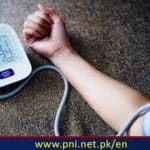ISLAMABAD, JULY 28 (ONLINE): Like to snack? If you do, you’re not alone. A 2022 survey by Food Insight found that 73 percent of us report snacking at least once a day. (Are there really people out there who eat no snacks?) On average, 24 percent of adults’ daily calories are consumed during snack time, per the United States Department of Agriculture (USDA).
The good news? Between-meal noshing may actually benefit your health, at least if you’re choosing the right kinds of foods, according to a new study presented at Nutrition 2023, the annual flagship meeting of the American Society for Nutrition.
“Our study showed that the quality of snacking is more important than the quantity or frequency of snacking, thus choosing high quality snacks over highly processed snacks is likely beneficial,” said Kate Bermingham, PhD, a postdoctoral fellow at King’s College London, in a press release. “Timing is also important, with late-night snacking being unfavorable for health.”
High Triglycerides Can Increase the Risk of Heart Disease and Metabolic Syndrome
To explore the health effects of snacking, researchers used data from 1,001 people in the United Kingdom enrolled in the ZOE PREDICT project, a group of large in-depth nutritional research studies designed to help experts understand how and why people respond differently to the same foods.
Participants were between 34 and 58 years old, with an average age of 46. The average body mass index (BMI) was 25.6, and 73 percent of the participants were female. Almost all the participants, 95 percent, were snackers and ate an average of a little more than two snacks a day.
Investigators analyzed the participants dietary patterns over two to four days, and snacks were given a quality score according to their health value. High quality snacks included items such as nuts, seeds, or fruits. Highly processed foods like candy or cookies, were considered lower quality. The timing of people’s snacks was also tracked, and foods eaten after 9 p.m. were considered late-night snacks.
Researchers then looked at indicators of cardiometabolic health including weight, blood glucose, insulin, and triglycerides to see how they correlated with snack quantity, quality, and timing.
Having high triglycerides can be part of metabolic syndrome, and it’s estimated that about 1 in 4 adults are affected, according to the National Heart, Lung, and Blood Institute.
0:04 / 0:10
Eating Healthy Snacks and Avoiding Late Night Snacking Improved Health Measures
Key findings from the analysis included:
• People who ate high-quality snacks were more likely to have healthier triglycerides and blood sugar levels than those who ate highly processed snacks.
• Late-evening snacking, which lengthens eating windows and shortens the overnight fasting period, was associated with unfavorable blood glucose and lipid levels.
• Importantly, the amount of snacking (calories consumed) and how many snacks a person ate per day didn’t appear to adversely affect health outcomes nearly as much as snack quality.
“These findings make sense: Any time high quality food is consumed, there is a benefit,” says Erin Rossi, RD, a registered dietitian with Cleveland Clinic’s Center for Human Nutrition in Ohio who was not involved in the research. “This could be increased fiber or protein to help with feelings of fullness, or fruits and vegetables to help stay hydrated,” she says.
Follow the PNI Facebook page for the latest news and updates.








